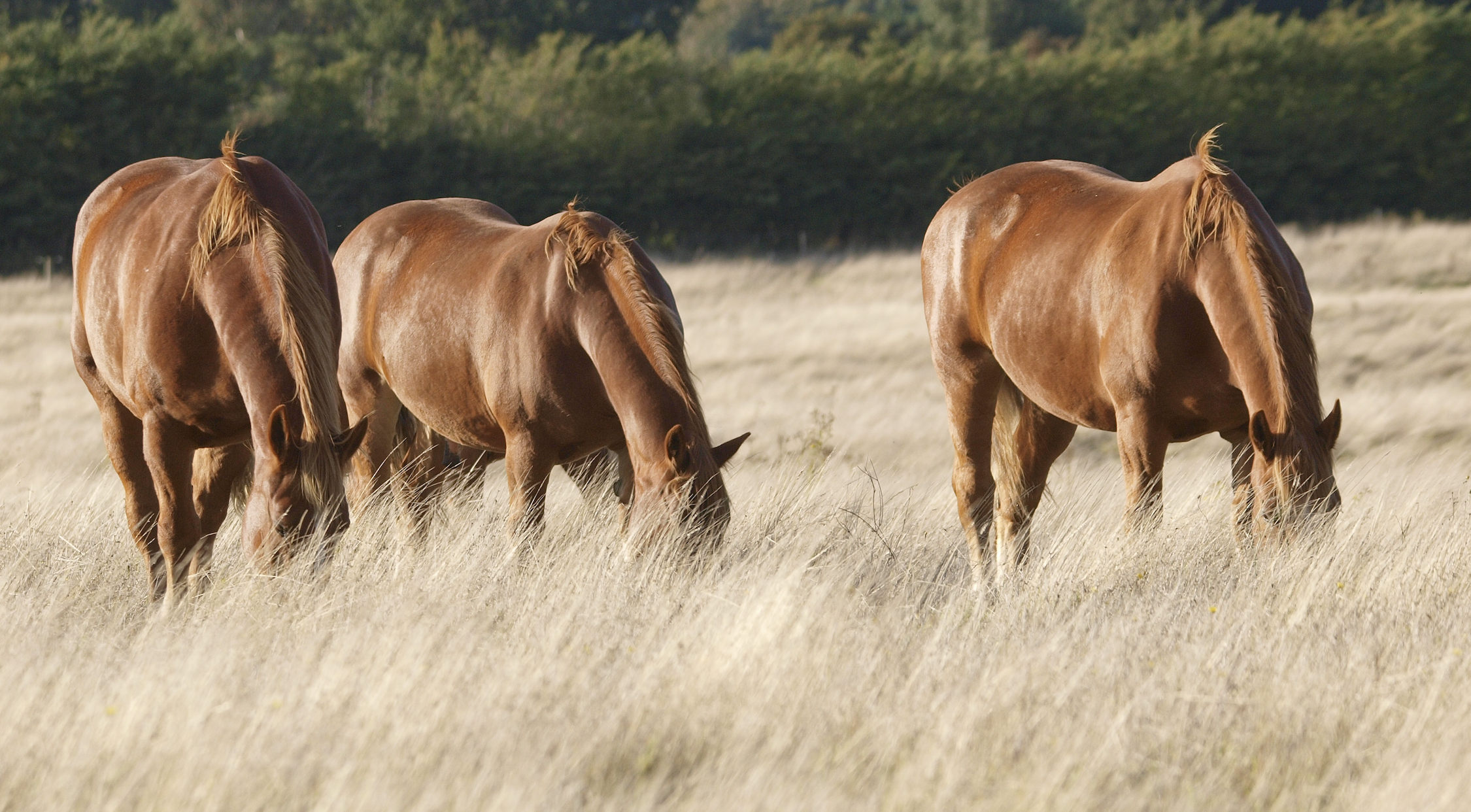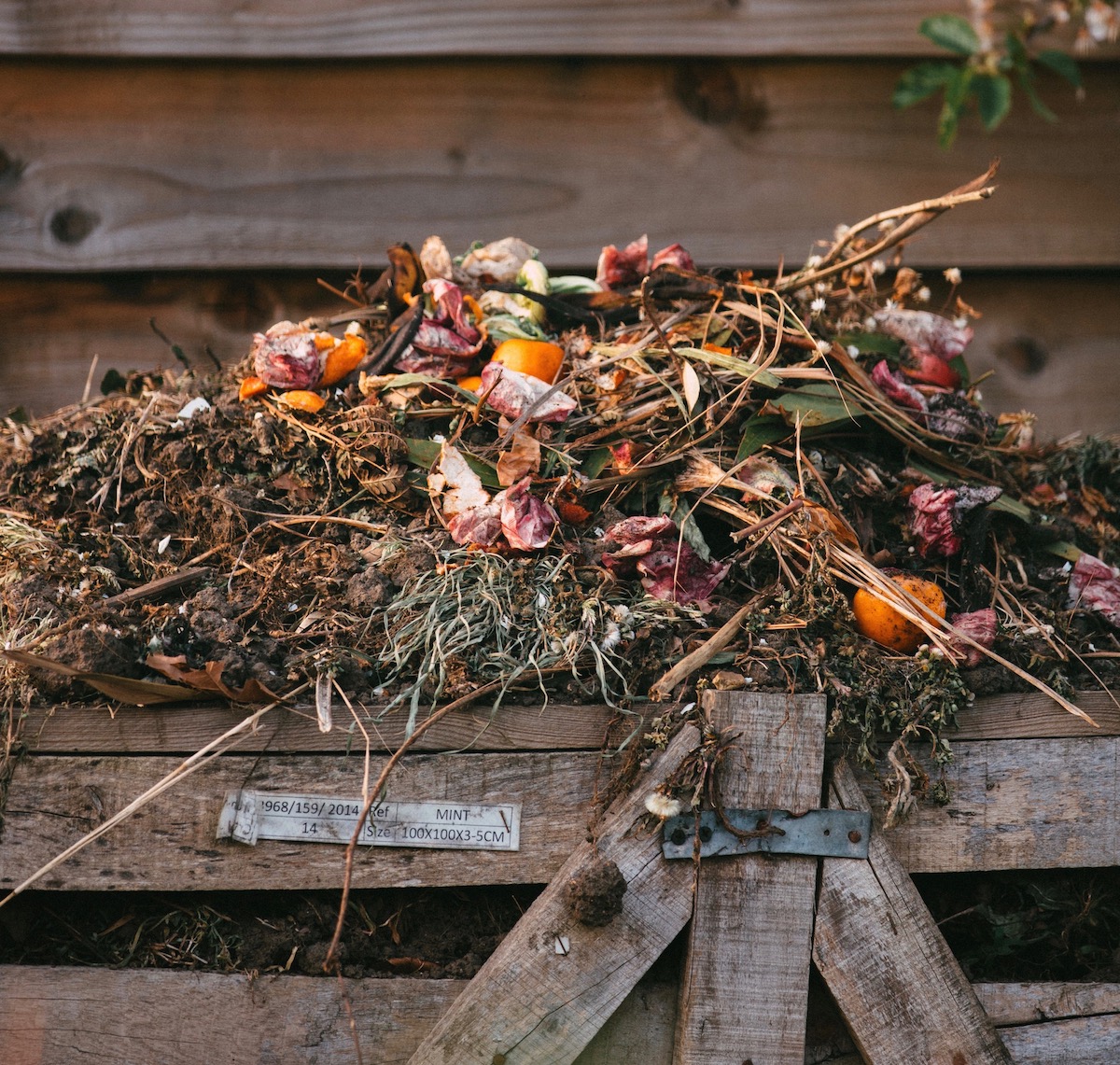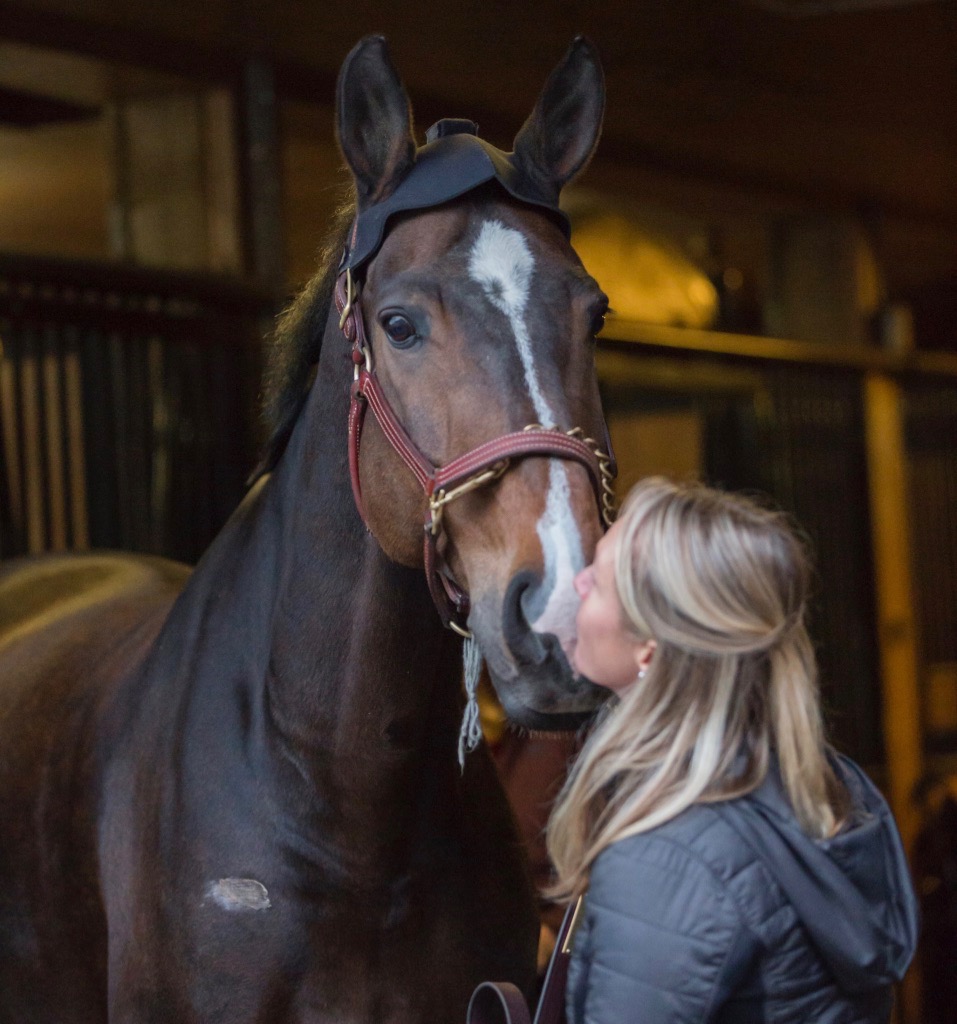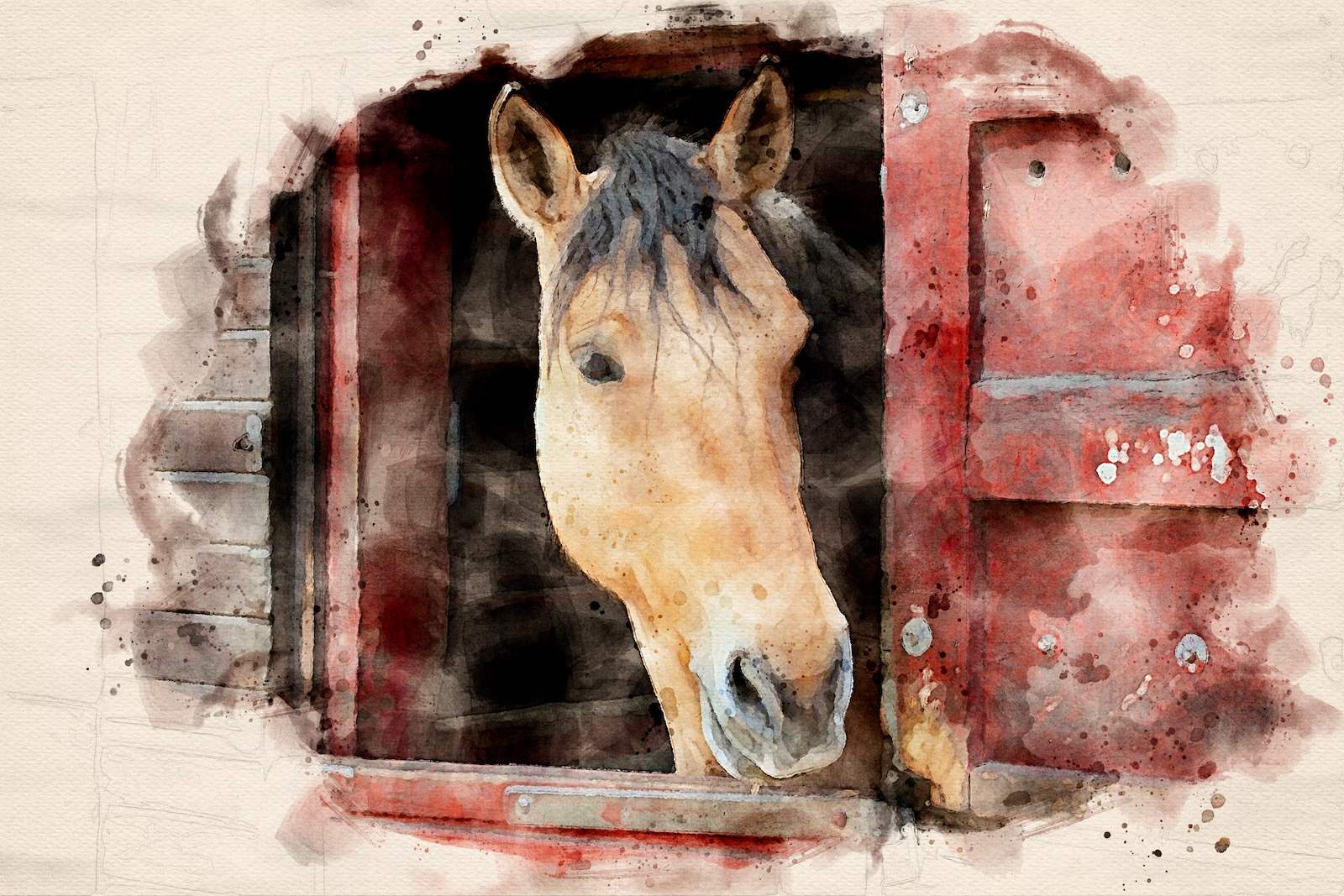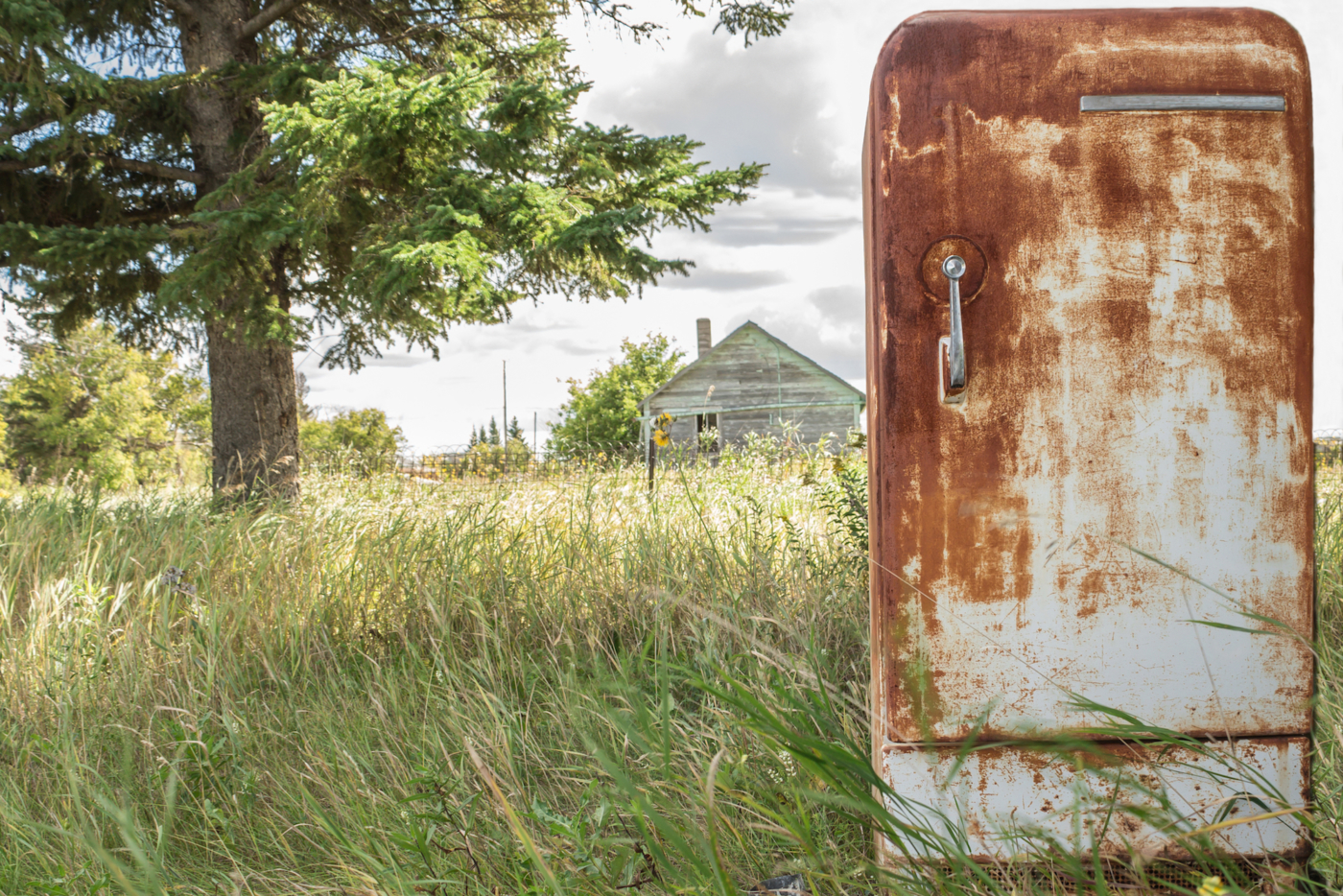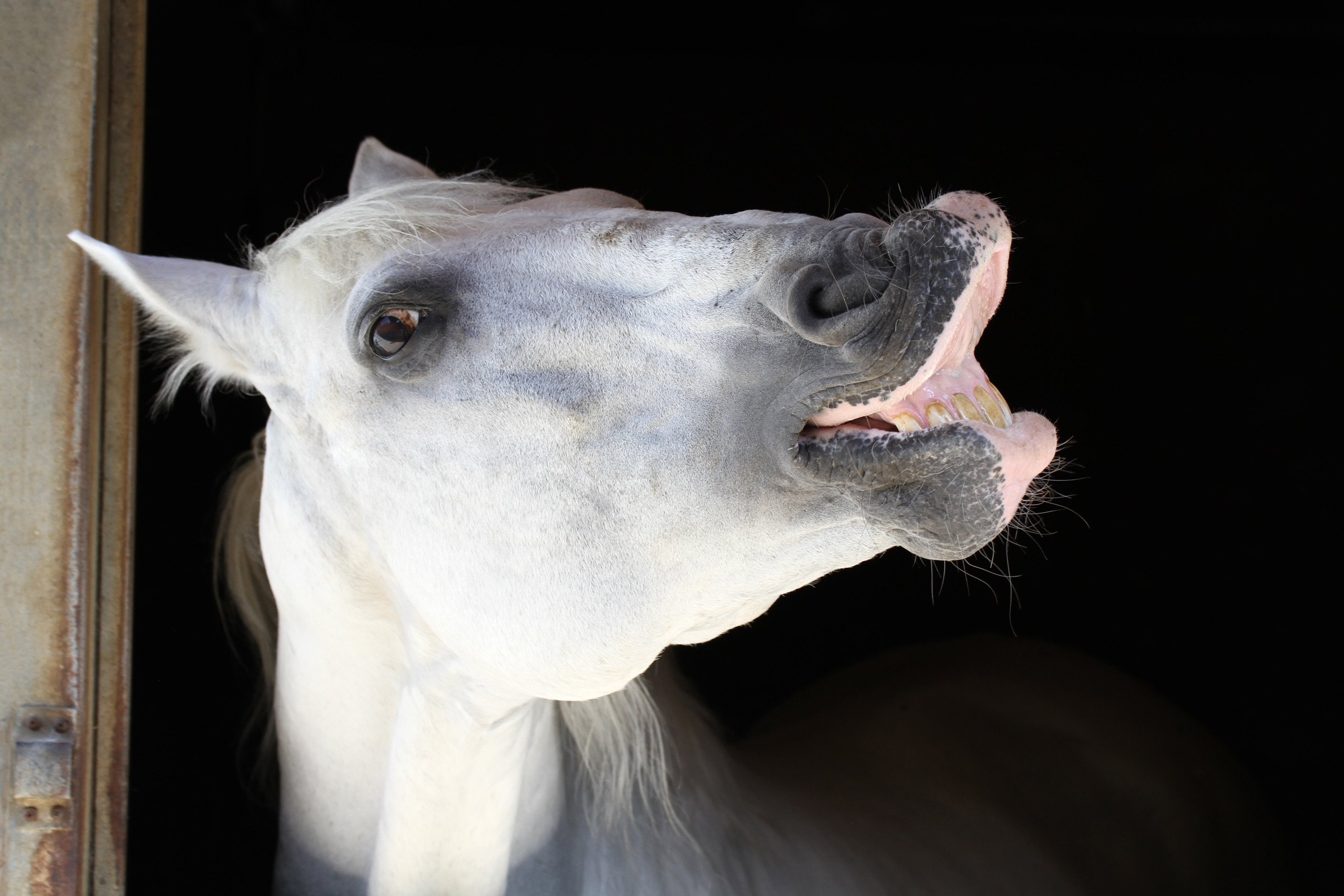Several months ago, we developed a series called “The Power of Nutrition” in which we discussed basic equine feeding regimens with a nutritionist, explored how carbohydrates affect the equine diet, and “Asked The Vet” about when it might be time to investigate issues that potentially extend beyond the feed room. Not surprisingly, as is the case with many of our topics, the nutrition series was inspired by one of the OR geldings that had experienced a fairly sudden change in body condition. Normally a far-too-easy keeper, this horse’s topline disappeared, his belly became distended, and – for the first time in this handsome hunter’s life – he failed to stop traffic headed down the aisle of the barn. And so, after a litany of dietary changes were ineffective and lab tests gave no definitive answers, we called in the big guns.
Amy Polkes, DVM, DACVIM, is a veterinary specialist and the owner of Hudson Valley Equine Internal Medicine. She is often called upon by an owner’s regular veterinarian when advanced diagnostics and treatment options are necessary. After performing an ultrasound at the OR stables, Dr. Polkes diagnosed the aforementioned gelding with inflammatory bowel disease (Yes, that’s a thing, and apparently it’s not uncommon.). Two months of treatment got our boy back on track, and in the process we learned that monitoring horses for the usual suspects (acute colic, ulcers, and laminitis) isn’t always sufficient. With that in mind, we tapped into Dr. Polkes’ vast cognitive databank and basically asked her to explain to us what we don’t know that we don’t know about equine digestive disorders.
Or, more concisely…what the heck?!
I specialize in Equine Internal Medicine which encompasses many areas including gastroenterology, neurology, respiratory, cardiology and other medical problems.
I was in private equine practice for a few years before I decided that I wanted to specialize in medicine and concentrate on more difficult and challenging cases.
With regards to gastroenterology, what are some of the non-obvious ailments or symptoms that require a farm call from a vet with your expertise?
There are so many different symptoms, but the most common reasons I become involved in a case are:
- The problem requires expertise in advanced diagnostics that can be provided by an internal medicine specialist
- The horse is not responding to the prescribed treatment and the veterinarian/owner are concerned
- The problem is complex
- There is something in the lab work that is concerning to the veterinarian
- The problem is chronic or recurring
Outside of colic and ulcers, what are a few of the most common issues and/or gastrointestinal diseases that affect the horse?
Colic is a general term for abdominal pain and can be caused by many things, so that is a very broad term. Many people think of colic as an acute painful episode, but it can be chronic as well. Also, what may appear as colic could turn out to be something not related to the gastrointestinal system (for example, a bladder stone).
The most common gastrointestinal diseases that I see are inflammatory bowel disease, gastric emptying disorders, neoplasia (cancer), complicated ulcer disease or non-healing ulcers, and diarrhea/chronic diarrhea.
Intermittent or chronic colic, diarrhea, poor appetite and change in behavior.
A good, complete physical examination to start. Also, reviewing the history including diet, supplements, exercise and anything else that could potentially be relevant.
The most common gastrointestinal diagnostics would be gastroscopy, abdominal ultrasound, biopsies, abdominocentesis (taking abdominal fluid) and anything else that might be indicated based on those results (lab work, etc.).
What are the usual treatments and prognoses for the aforementioned issues?
Every case is different and may require different treatment protocols that could include changes in diet, management and medical protocols (steroids, antibiotics, anti-inflammatories).
If you could teach all horse owners one thing about the equine digestive system, what would it be?
One thing I would remind people is that horses are not people, and they have a very different digestive system! I often see people feed diets and supplements based on what they think is good for them. My best example is coconut-based feed – I have never heard of a horse in the wild shaking a tree and breaking open a coconut!
Fun fact: horses have no gall bladder. They secrete acid constantly, and not related to eating. For this reason, horses are meant to be horses, and we need to do the best job we can in allowing them to have normal feeding behavior. They should be grazing as much as possible for gastrointestinal and mental health. In the wild, horses will travel miles daily eating. If we confine them to a stall and feed them bolus meals, we are not allowing their gastrointestinal system to work properly. So the one thing horse owners can do is be mindful of this and try to let their horses be horses!
 Tell us a fun or interesting story about an experience that you’ve had while working with horses.
Tell us a fun or interesting story about an experience that you’ve had while working with horses.
Oh my, so many!
Some of my funniest stories are about owners that are so stressed out about fasting their horses for gastroscopy. Horses need to be fasted for about 16 hours, which basically means they just miss breakfast in the morning. I have had owners that swear they gave their horse nothing, and then I find carrots in the stomach (oops, busted!). I knew one owner that fasted with her horse! I made her eat before she held her horse for me. I also had a big, burly cowboy that fainted when he saw his horse’s stomach (I was not expecting that one!). Gastroscopy seems much more stressful for owners than the horses! They don’t mind much at all in fact. 🙂
I love the relationships between horses and their owners. People are just very funny, and love to tell me their horse’s life story. Especially now that horses are living longer, many owners have a special bond with their horse because they have been with them so many years. I hear a lot of “I have had my horse longer than my husband” so…


